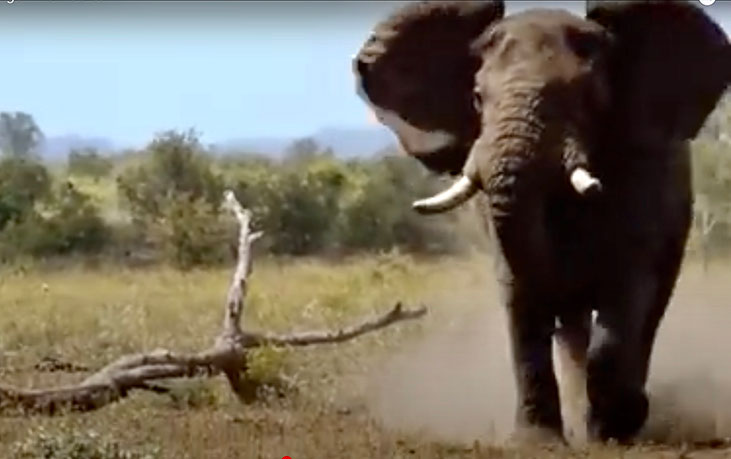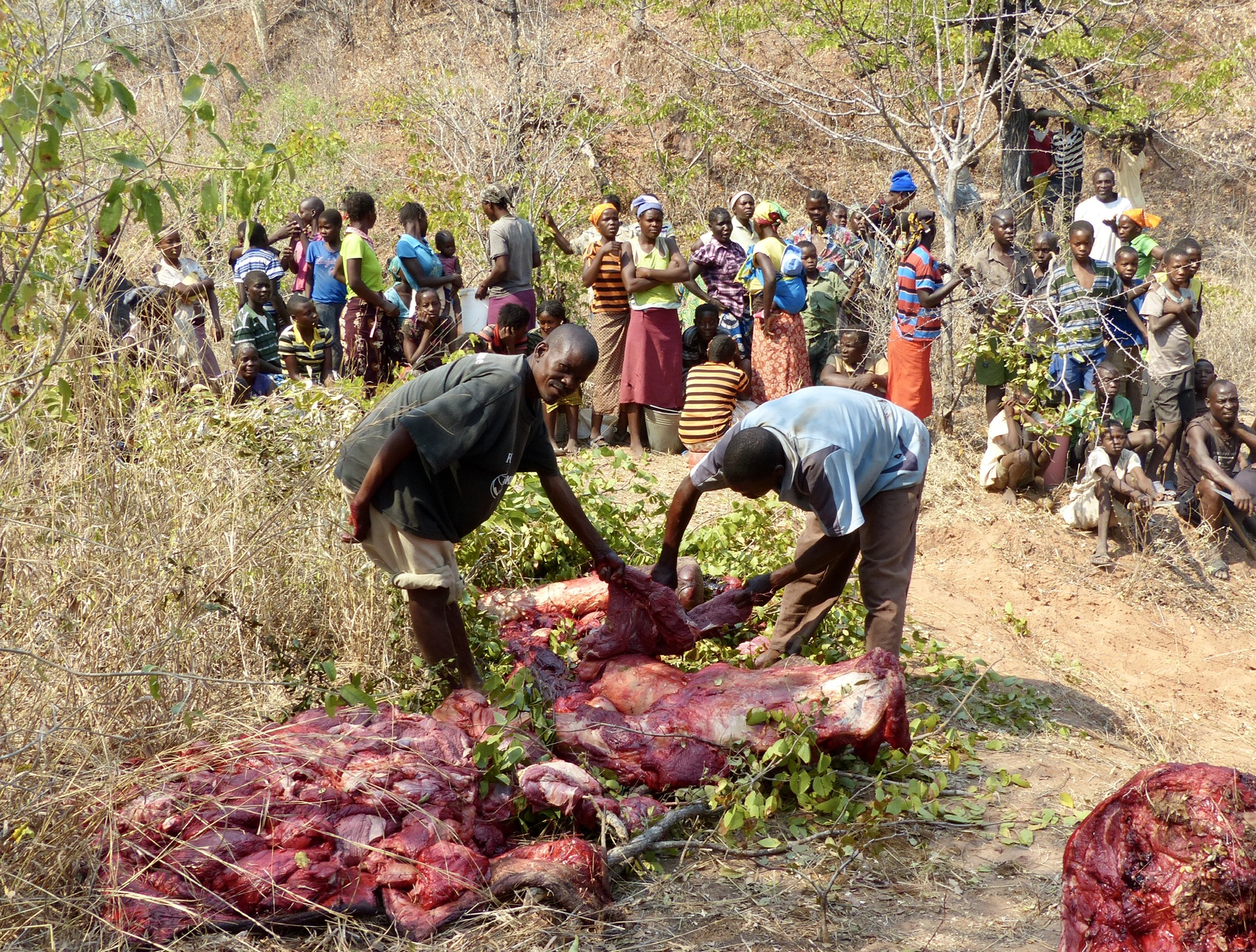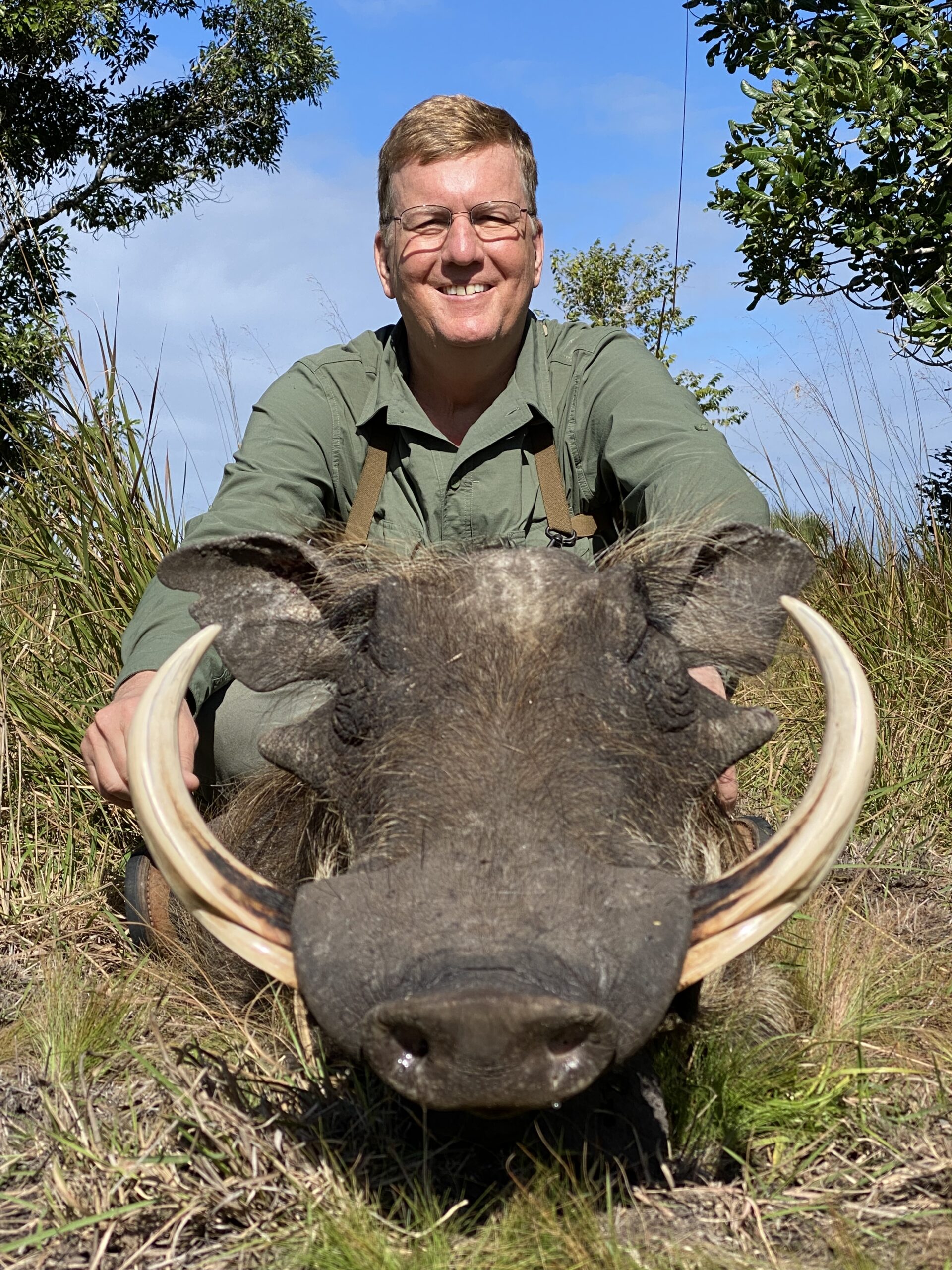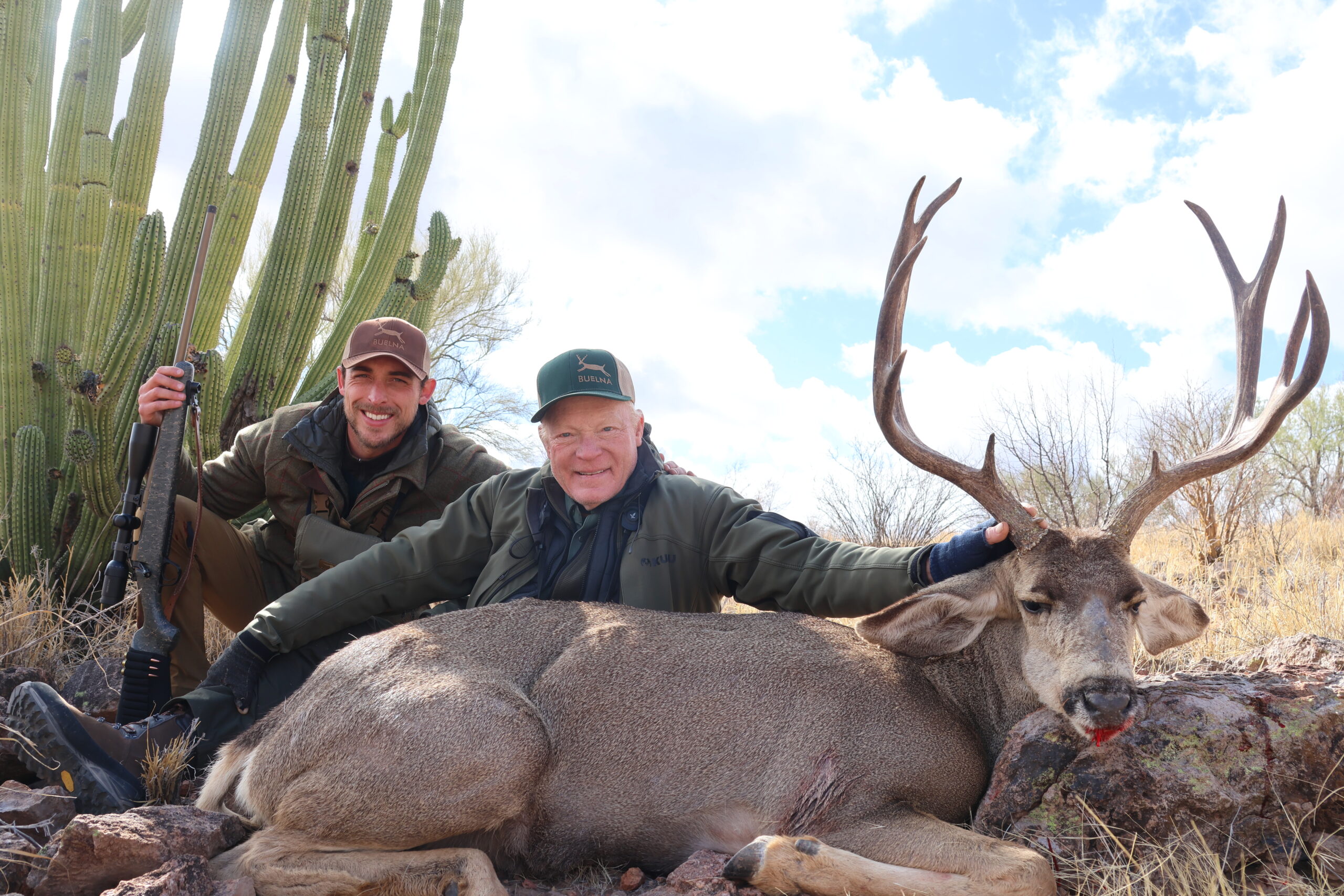By Captain C.H. Stigand Edited By Ellen Enzler-Herring of Trophy Room Books
We decided to move camp and I sent for my canoe, which I had left at my first camp on the Nile, as it would be impossible for the porters to carry all the ivory. The canoe proved an absolute godsend later, as I should not have been able to proceed without it. But at present it was not much use as I had been unable to obtain any paddles. Meanwhile several of the natives insisted on returning home, claiming they would have to return through hostile country if they came any further with me. With no paddles and no natives who understood how to manage a canoe, I had to proceed down the Nile by short marches.

In this slow and stately way, we continued towards Wadelai. I did manage to kill some game for food, and also to trade some meat for a paddle and then showed two porters how to manage the canoe. Two days later, I followed a herd of elephant, and they took me past a spot where an elephant had been previously killed. This is a thing I have frequently noticed when after elephant — how often their spoor leads you past an old skull or the spot at which one had been killed. It happens so often I think it is more than coincidence. It might be just some old elephant track that had been habitually used, while it appears to me just like any other part of the bush because it is so overgrown.
I sent ahead to Wadelai asking my friend to send some porters to help me. The native returned saying my friend was not there. I later found out the native had never actually gone to the correct place. Meanwhile after about 10 miles, we met fresh spoor of two big elephants so I sent some men on to camp while I followed the spoor. It led inland and then to immense tall grass and weeds which covered some low, wet, slushy country on the banks of the Arua River. After a couple of hours slogging through water and mud, we heard them on the other side of a belt of very thick grass.
On the other side, we came into shorter grass, and I got a glimpse of one of them 150 yards away, as I was on a little rise. I made my way to a tree, 60-70 yards nearer from where I could have got a good shot. But just as I was about to fire, I saw the elephant behind him and caught a glimpse of larger tusks. I could not see him well enough to fire so decided to get closer. Between me and the elephant was a shallow dip so that if I advanced at all, I must advance almost up to where he stood, and would pass out of sight as soon as I left the higher ground near my tree.
Slowly I descended to the dip, where the grass was long and dead and rustled as I moved. I got to within 25 yards of the first elephant but could not see the second. The first one was breaking up a small tree when he heard me moving. Suddenly he turned around, ears outspread. In a moment he would have been off, so I had to fire. I gave him both barrels of my .450, and he crashed off into the thick grass and reeds.
I followed his spoor, which after a few hundred yards began to show a lot of blood. I followed through thick reeds until I heard a noise in front. Climbing up a convenient anthill I saw an elephant standing under a tree in front. He immediately moved, passing out of sight. Then I heard a rustling noise and for a moment could not make out what it was. Then I realized — it was water splashing. He must have descended into a stream, likely the river that I heard was between me and Wadelai.

There was not a moment to lose, so I slid down the anthill and raced to the spoor, coming out suddenly on a dense belt of reed, through which the path led as a narrow lane. The next moment I was on the riverbank with a dense mass of reed leaning well out over the water and providing me with a view both upstream and down. Just below was not only my elephant, but a herd, all bulls, of about 25, all making their way across the stream, which was coming down in flood.
Never had there been such a chance. I could see the steep bank on the opposite side, up which they must clamber one by one, exposing their heads to a vital shot as they did so. It is the sort of situation I have dreamed of but never hoped to realize. Bringing up the rear was my wounded elephant, presenting only a stern shot to me. Looking back, I should have waited until the leading elephant began climbing the opposite bank, 40 yards away. But what I did was to blaze into the stern of my wounded one. He turned round and started coming back towards me. While the rest of the herd stopped midstream and marked time. This turning gave me a chance to fire into his chest, which I did without delay.
As mentioned, I was in a narrow lane of tall reeds and could see across the river to the landing. But, owing to the reeds at the water’s edge, I could see neither up or down the river but only the narrow strip of water straight across. The stream was coming down with great force and as I fired into the elephant’s chest, he seemed to be carried downstream by the current and passed out of sight behind the reeds. The same thing happened to the rest of the herd. They were not 20 yards downstream, but it was enough to take them out of my sight, although I could hear them.
I rushed back through the reeds and charged into the belt another 10-15 yards downstream and fought and pushed my way through until I stood on the edge of the steep bank. But here my position was worse than before! I could hear the elephant just below. The nearest could not have been more than 10-15 yards away, but so dense was the mass of reeds growing outwards from the bank over the water that I could not see one square inch of the water at my feet, far less the elephant.
It seemed the most maddening thing possible. If I could only find an open space, I should shoot any number of elephants. But here I was defeated by a mass of reeds. The sounds passed downstream, and I crashed through the reeds once again and ran down to the bank about 40 yards before making another dive into the reeds. I rushed with such impulse that I fell down a steep bank, ramming the muzzle of my rifle in the soft earth as I fell.

After scrambling out again, I had to run back along my tracks until I found the porter (who had dallied behind) and got my second rifle. I dashed down the elephant path again, along the reed belt, and after a couple hundred yards there was a break in the reeds. It had been trampled by elephant. It was at a bend in the river that I came out onto the bank and got a clear view several hundred yards upstream. There was no sign of elephant, not even of a wounded one, nothing but muddy river frothing down in flood.
I turned back to search for signs of the wounded animal. The stream was strong, and I had to move carefully. On reaching the edge of the reeds, I looked around the corner. The river at this point was above my waist. To my relief I saw the side of the elephant rising as a little island about a foot above the water. I managed to reach it but was neck deep in the water and climbed onto him. His head was below the water and the river was too muddy to see the tusks. I could only ascertain what they were like by feeling them.
As I knelt down, the elephant moved. I thought he might be coming to life again but then realized what had happened. The river had risen a few inches and floated him off the bottom, and I was commencing to float downstream on top of him. I hurriedly left him and tried to reach the shore again, but the stream was so strong that I was unable to make any headway against it. I made no headway and certainly would have been carried downstream but one of the local natives who accompanied us, reached out with his long spear while he himself was standing in shallower water and holding on to the reeds. With this help I regained the bank while watching my elephant majestically floating downstream. So, how to recapture the elephant? I had visions of him sailing out to the Nile or being eaten by crocodiles while his tusks sank to the bottom and were lost forever.
We hurried back down to the river to fetch ropes and assistance but there was no telling where he might land, and the banks were so thick that it might be almost impossible to locate him. I worried that if the natives got hold of him, they would cut up all the meat in the water and let the skull and tusks sink to the bottom, as these bones did not interest them at all.
A two-hour walk brought us to a big village on the riverbank. It was here that the path to Wadelai crossed, and I heard with a certain amount of satisfaction that all my loads had passed over to the other bank in safety. It puzzled me to imagine how this had been accomplished, as the river was coming down in a prodigious state and was reported to be over a man’s head at the middle of the ford.

When I said that I wanted to cross, a few of the villagers tested the ford by entering the river a couple hundred yards upstream and proceeding diagonally across with a funny skipping and bobbing motions. They held their hands straight above their heads and as they neared the center each skip carried them about 20 yards downstream to one yard across. At one time their heads disappeared under water and only their hands were above the level of the river.
On arriving at the other side, they ran up the bank. Then throwing themselves into the water again, they came swimming across like fish and pronounced the ford practicable. So, taking my rifles, ammunition, field glasses and camera, they held them high above their heads and bobbed and skipped across the river with them. Although the men carrying them were at one time under water, my goods reach the other side safe and dry. I learned that all my loads had been taken across in this wonderful way, but the water had not been so high then. Only one load had got a little wet, but it contained only trade goods that were soon dried again.
We got into the old Belgian Station at 3 p.m. where I collected my porters, and taking some rope set out to find the truant elephant. We followed up the riverbank on the Wadelai side as, owing to the bend of the river, it was not so far up this side. The elephant had come to shore and then the natives lost no time in nosing him out. Suddenly, we heard the sound of many voices, which guided us to the spot, and we found a number of people in the water busily cutting up the carcass.

The first precaution I took was to moor the tusks to the bank so that there would be no danger of them being washed downstream or falling to the bottom of the river after being cut out. The porters worked well and by shortly after sunset the tusks were out, and we all started back again. We blundered along in the dark and overshot the station as there were no stars out to guide us. Finally, we ran into a village and got a native to put us on the path.
We did not get in until about 11 p.m. that night. However, I found dinner in the old Belgian mess, which was in quite good repair. I had been on the move since sunrise and had been twice wet through and had my clothes dry on me. So it was with some relief that I changed clothes, ate, and, knowing my tusks were secure, anchored my body to a bed.




